American Beech Holds up Under Heavy Foot Traffic

This affordable hardwood flooring, with its pale tones and low contrast between heartwood and sapwood, makes rooms feel airier and brighter. American Beech is also known for its high shock resistance and durability, which is why its lumber is often used to make railroad cross-ties. It lacks the curly grain and dramatic colors of more expensive hardwoods, but it’s an excellent choice for homeowners who want a low-maintenance floor that withstands wear.
The American Beech has supplemented the diets of wildlife and humans with its edible nuts, inner bark and leaves. Under the right growing conditions, the trees may grow to be more than 100 feet tall and 300 years old, and their smooth, resilient bark is often scarred by initials – allegedly, a 365-year-old American Beech in Tennessee that died in 1916 bore a carved phrase that some people attributed to pioneer Daniel Boone.
Here are some things you should know about American Beech flooring:
Name: Beech trees are members of the Fagaceae family; the American Beech is the species known as Fagus grandifolia, which loosely translates to mean “Edible large leaves.”
Origins: Southeastern Canada, and most of the Eastern United States, with a western border close to the Mississippi River, and extending southward to the Gulf Coast and southern Georgia.
Janka Hardness Rating: With a Janka Hardness rating of 1300 out of 4000, the American Beech wood species falls within the medium range for hardwood flooring options. The Janka Hardness scale is used to determine a hardwood’s resistance to dents, dings and scratches. The test, which uses a 2” x 2” x 6” piece of a wood specimen and a steel ball, determines how many pounds per square inch of force will make the steel ball embed halfway into the wood. That result leads to the wood’s Janka Hardness rating. Woods at the low end of the scale will show more evidence of dings compared to those at the top. However, woods at the very top of the Janka Hardness Scale could be too difficult to cut for home applications.
Installation: American Beech is easy to sand, but its closed grain and density may prevent stain from penetrating well or evenly. A clear coat or light stain close to its natural color is preferable to a dark stain. This hardwood holds glue and nails well, although wood may split during nailing, so pre-drilling holes may be necessary.



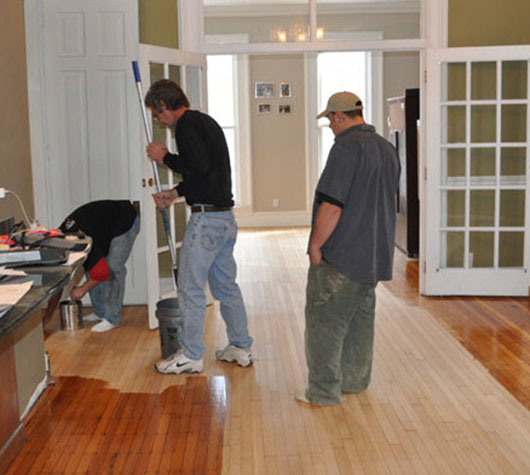 Repairing Scratched Hardwood Floors
Repairing Scratched Hardwood Floors
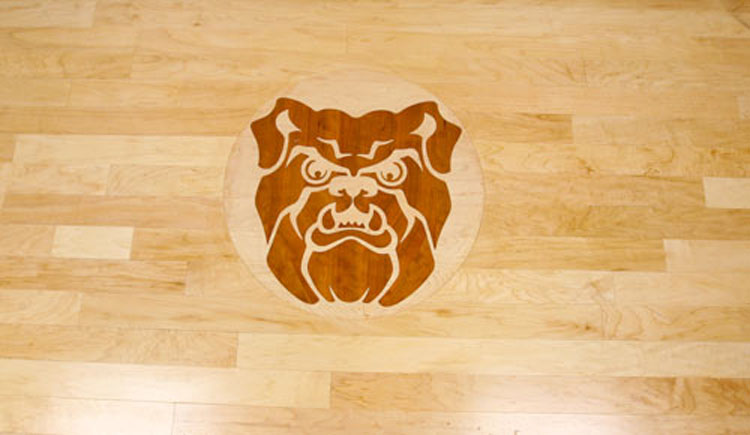 Hinkle Fieldhouse Butler Univers...
Hinkle Fieldhouse Butler Univers...
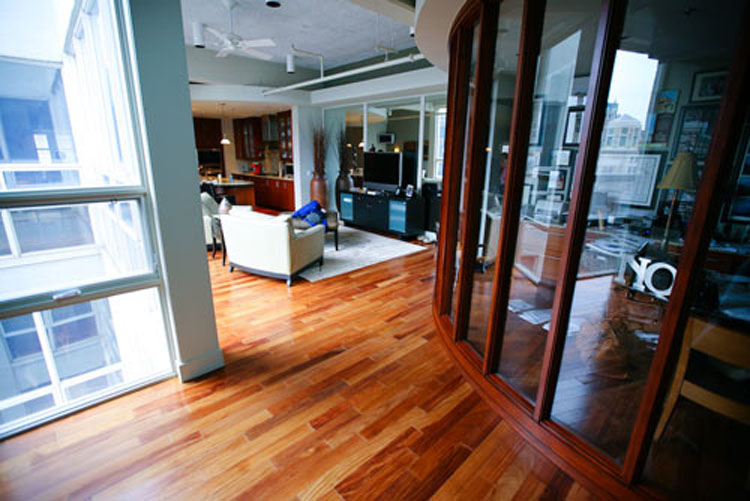 Penthouse Town Home Downtown Ind...
Penthouse Town Home Downtown Ind...
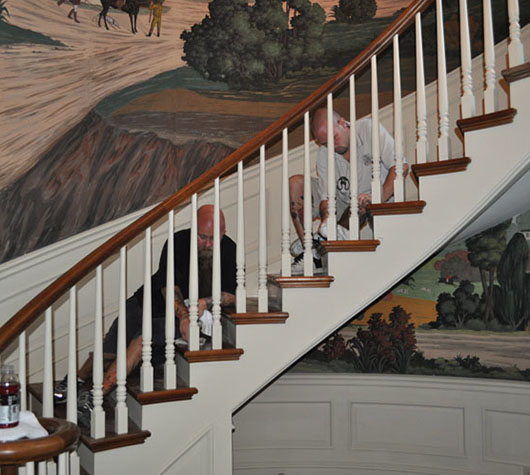 Antique Flooring Restoration
Antique Flooring Restoration
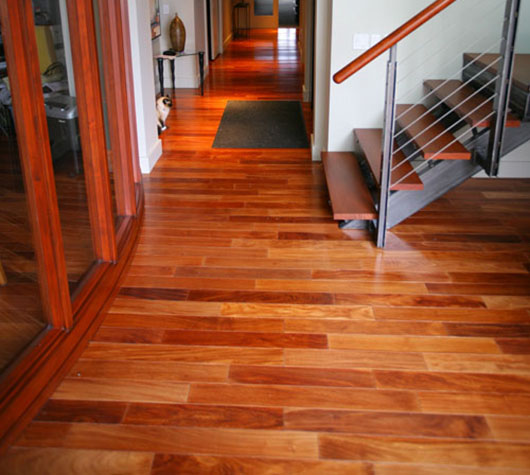 Brazilian Cherry Hardwood Floors
Brazilian Cherry Hardwood Floors







